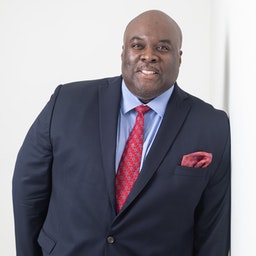By Chuck Hobbs
With Sen. Lindsay Graham (R-S.C) indicating that he may not vote to confirm Judge Ketanji Brown-Jackson as the first Black woman to serve on the Supreme Court during the same week that Sen. Joe Manchin (D-W.V.), and Sen. Susan Collins (R-ME), both met with the jurist and offered praise without indicating whether they would vote “yes” to confirm, raises anew the q-word, “qualifications,” and what that means for Black professionals under the condescending glare of white professionals in America.
One would think that a double Harvard graduate with an impeccable record as a lawyer and judge like Brown-Jackson would be a nearly unanimous “yes,” but the proverbial “elephant” in the room is the fusion of partisan politics and race, and the role that racial discrimination could play during her senate confirmation hearings later this month.
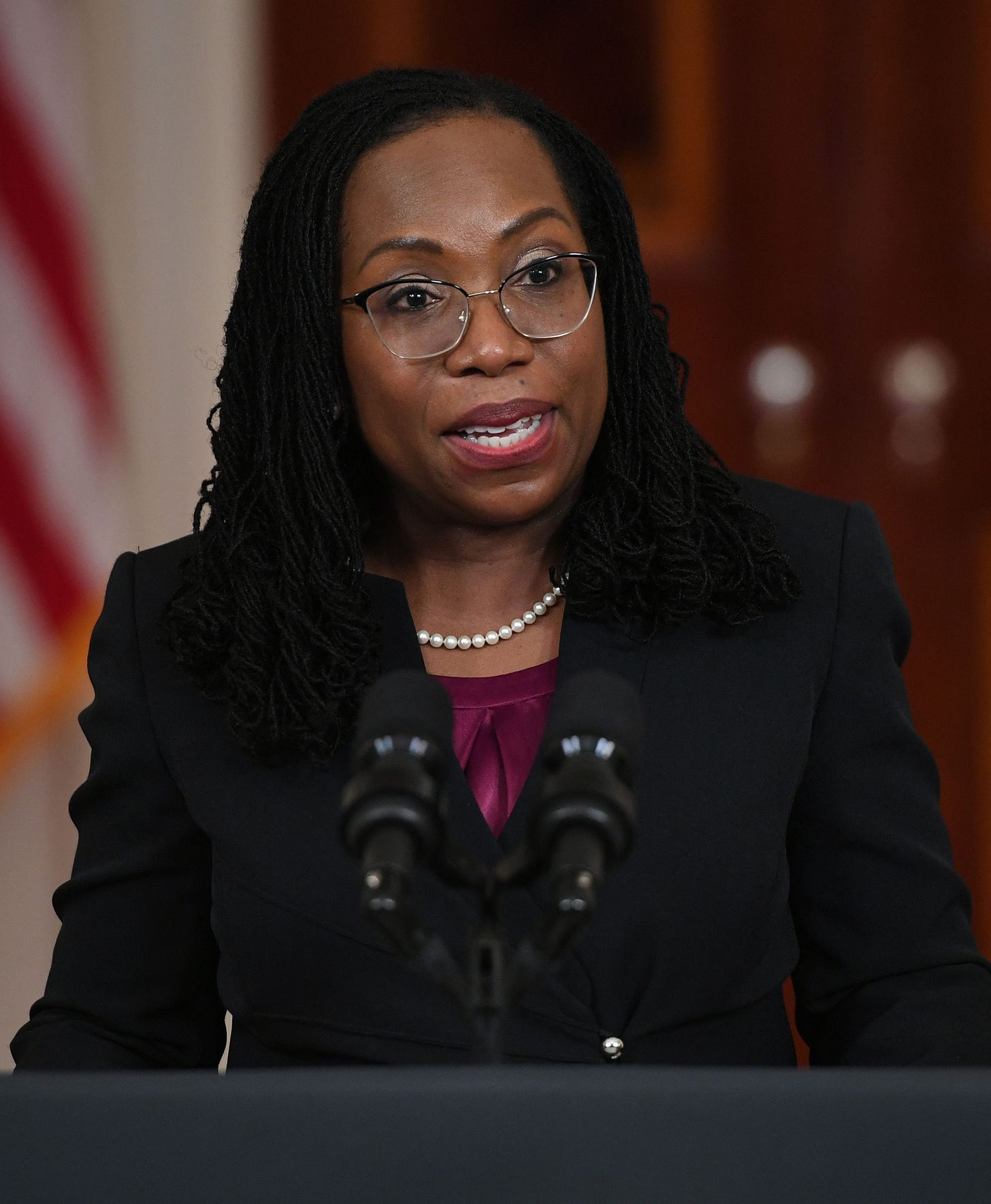
(Judge Ketanji Brown-Jackson)
What’s all the more frustrating to me is that we live in an era when racist skepticism about Judge Brown Jackson’s “qualifications” are often countered by right wing sophistry in the form of the categorically ignorant, “well, Blacks are just as racist as whites” line that I see time and again on social media. The folly in this notion is that racism, particularly systemic racism, has always been entirely a power construct. Meaning, while there surely are some Blacks who hold prejudices (or even personal hatred towards whites), that through the entirety of American history, Black people have never held the power to enact policies that discriminated against their white neighbors based entirely upon their non-melanated skin color.
Seriously, when was the last time (or the first time):
1. A predominantly Black College or University had a formal policy excluding white applicants from admission?
2. A Black owned banking institution refused to allow whites to deposit money or grant loans to white applicants?
3. A Black owned and operated hospital refused admission to a white patient?
4. A Black owned State Bar just happened to create mandatory bar exams and admissions in the wake of white attempts to attend the state run Black law school and to become practicing lawyers?
5. A Black homeowners association enacted restricted covenants to prevent whites from purchasing land or building homes in the neighborhood?
6. A Black dominated state legislature enacted laws preventing whites from peacefully assembling, serving on juries, sitting in the restaurant of their choosing, or riding public transit while sitting next to Blacks?
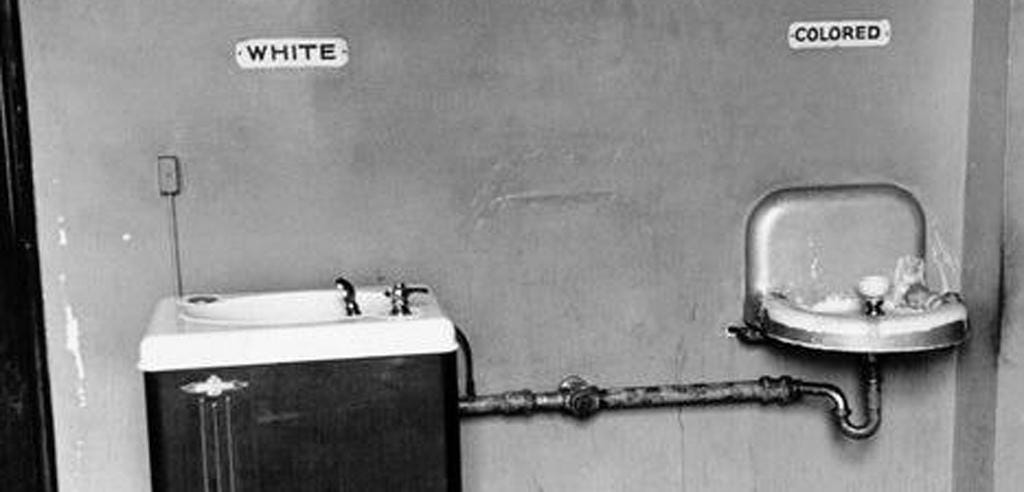
7. A Black run, government sponsored health agency experimented on white patients by shooting them with incurable diseases to study the effects on their bodies?
8. A Black sheriff designed a convict leasing program to enrich himself and his Black business cronies through the use of free white labor?
9. A Black owned professional sports league forbade whites from participating in said sport, like the all white 1961 Washington Redskins (below), or a Black owned golf club refused admission to white members?
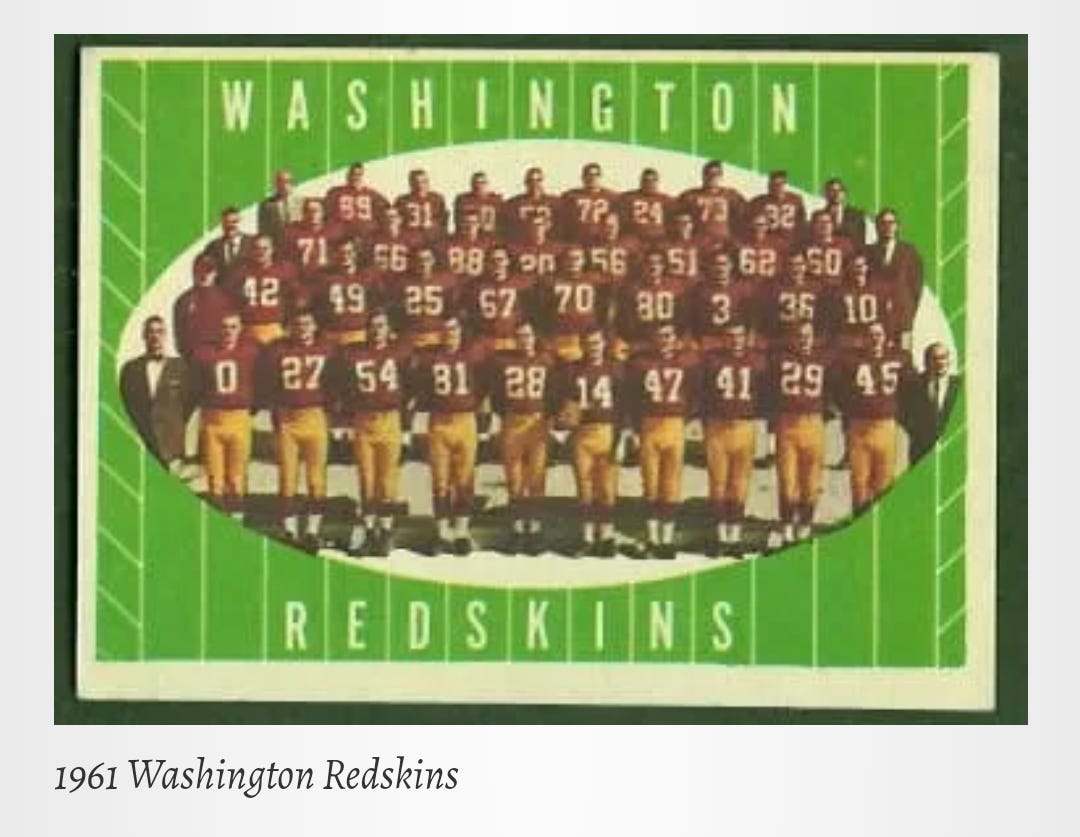
10. A group of Black politicos and elected officials questioned the legitimacy of a white sitting president’s birth, religion, patriotism and when all else fails, send letters to foreign heads of state as if said white president is not the actual president?
11. A group of Black law enforcement officials suggest that “white on white” crime is the excuse for any and all incidents of Black officers killing white suspects?
12. A Black sheriff or sheriff’s deputies allow a group of Black mobsters to remove a white defendant from jail to beat him, cut off his genitalia and feed parts of the same to him, before dousing him with gasoline and setting his body on fire in the public square for the world to see?
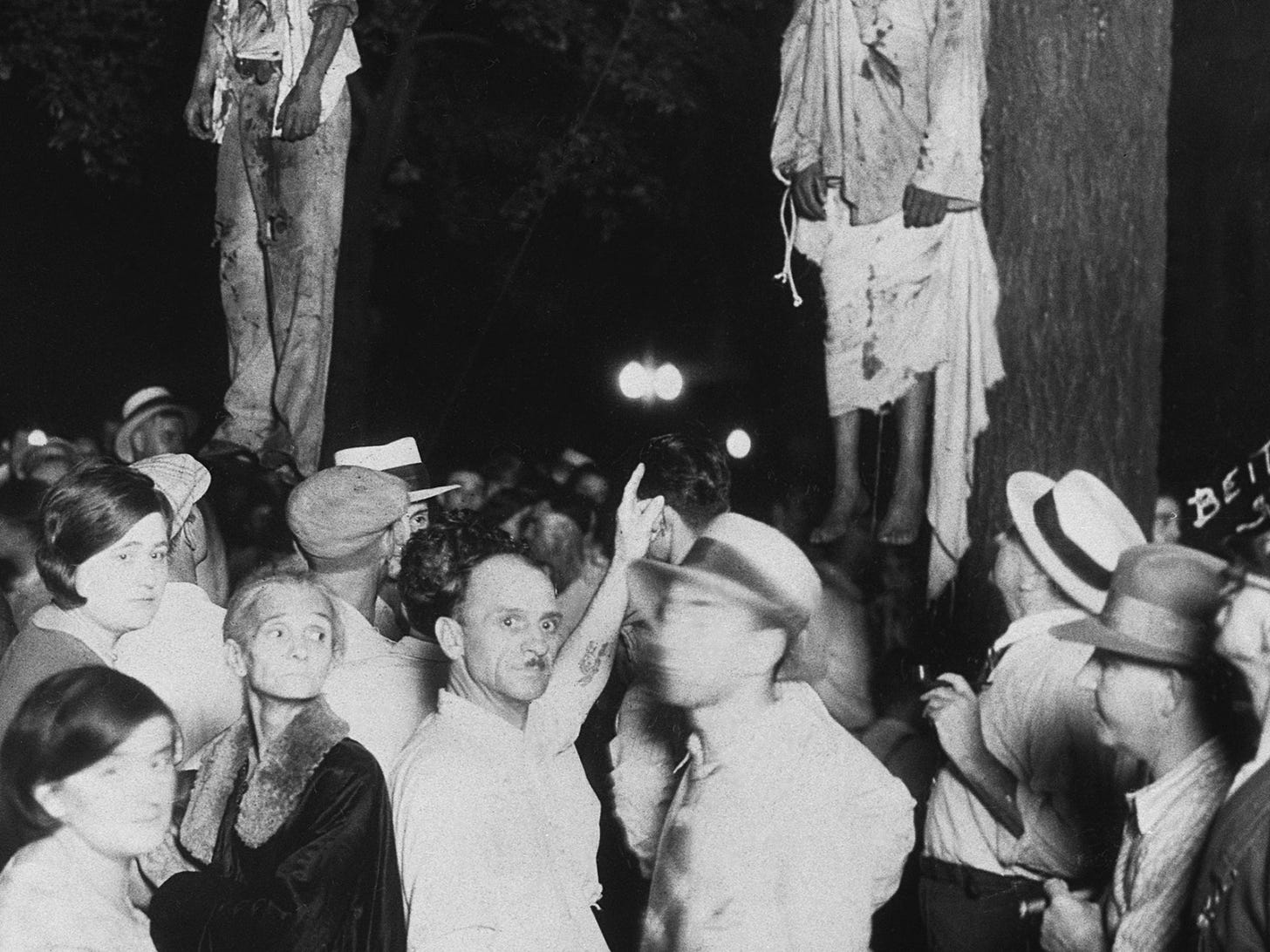
Save yourself some time on a Google search and trust me when I tell you that none of the aforementioned events were ever perpetrated by Blacks against whites. But history is replete with example after example of such atrocities being perpetrated, under color of law, by whites against Blacks—even up to this very day when discrimination is still found in every field of endeavor in America.
Thus, Hobbs the historian is here to remind that in the Supreme Court’s long and white male dominated history, over 40 of the men that served were confirmed to the bench with having either no law degree or only a few semesters of formal legal education—or no prior judicial experience! In fact, three of the most famous Chief Justices in American history, John Marshall, Roger B. Taney, and Earl Warren—had no prior judicial experience before being passed the gavel as the presiding jurist.
Even today, there’s no actual constitutional requirement that a Supreme Court nominee hold a law degree or even membership in a State Bar, but the trend towards having law school alumni nominated to the nation’s highest court began during the 1940’s, not long after President Franklin Roosevelt appointed James F. Byrnes of South Carolina, a high school dropout who taught himself the law and passed the bar exam at age 23, to the Supreme Court.
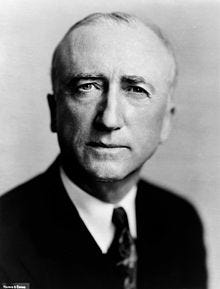
(Despite being an unabashed racist, FDR placed the segregation supporting James Byrnes on the U.S. Supreme Court in 1941)
While Byrnes had a successful practice before winning seats in the U.S. Congress, the Senate, and later serving as South Carolina’s governor, he was nominated to the Supreme Court by FDR despite having previously worked to uphold Jim Crow segregation and to defeat anti-lynching legislation. Byrnes infamously argued in 1938 that “(Black) rape (of white women) is responsible, directly and indirectly, for most of the lynching in America.”
While Byrnes only served on the Supreme Court for one year, that he was even deemed “qualified” despite having no formal education and a deplorable record on race not so long ago serves to render the modern arguments that Judge Ketanji Brown-Jackson is not qualified a complete nullity.

(Sen. Collins with Judge Brown-Jackson)
Lest we forget that Judge Brown-Jackson graduated from Harvard Law school, where she was the editor of the Harvard Law Review. Those credentials place her in the same Ivy League company as seven of the current justices who graduated from Harvard Law or Yale Law, with the eighth, Justice Amy Coney Barrett, being the lone non-Ivy graduate with a degree from the Notre Dame School of Law.
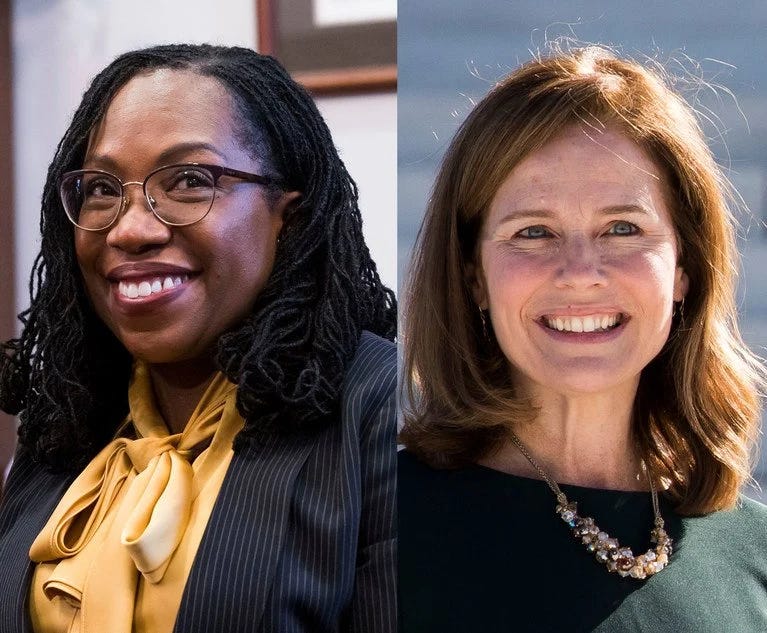
(Judge Brown-Jackson served eight years as a federal district judge prior to her current one year stint as a federal appeals judge, which means that her nine years of judicial experience are more than double the four years of judicial experience that Justice Amy Coney-Barrett had prior to being confirmed on the Supreme Court in 2020).
Lest we also forget that in addition to having clerked for three federal judges, including the man that she could replace, retiring Justice Stephen Breyer, that Brown-Jackson practiced criminal law for nine years—a credential that she would share with none of her potential Supreme Court colleagues, but one that would provide valuable first hand knowledge during the myriad criminal law and procedure cases that the Court considers each year.
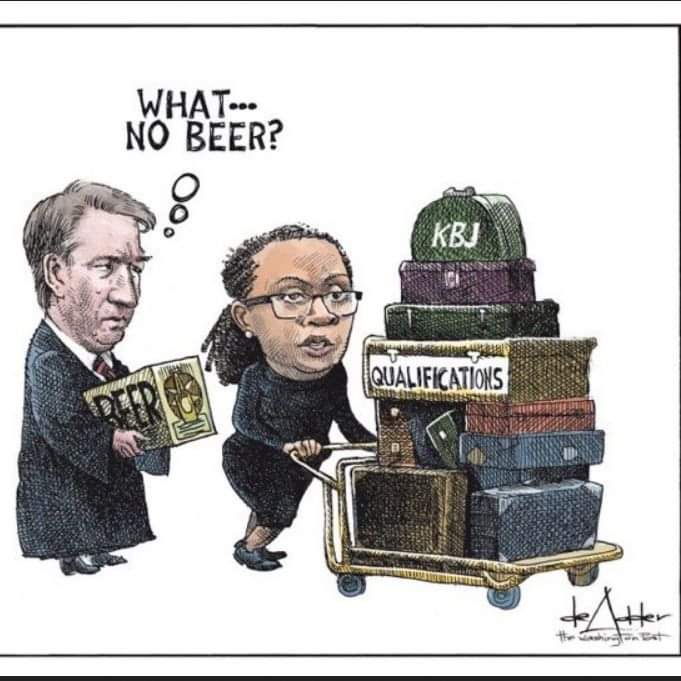
A cartoonist’s Perspective
Ergo, there’s no question at all that Judge Ketanji Brown-Jackson is qualified for the position, just as there’s no question that those who refuse to concede such are not just “playing politics,” but playing the same trite racial politics that have plagued talented Black professionals from time immemorial.


